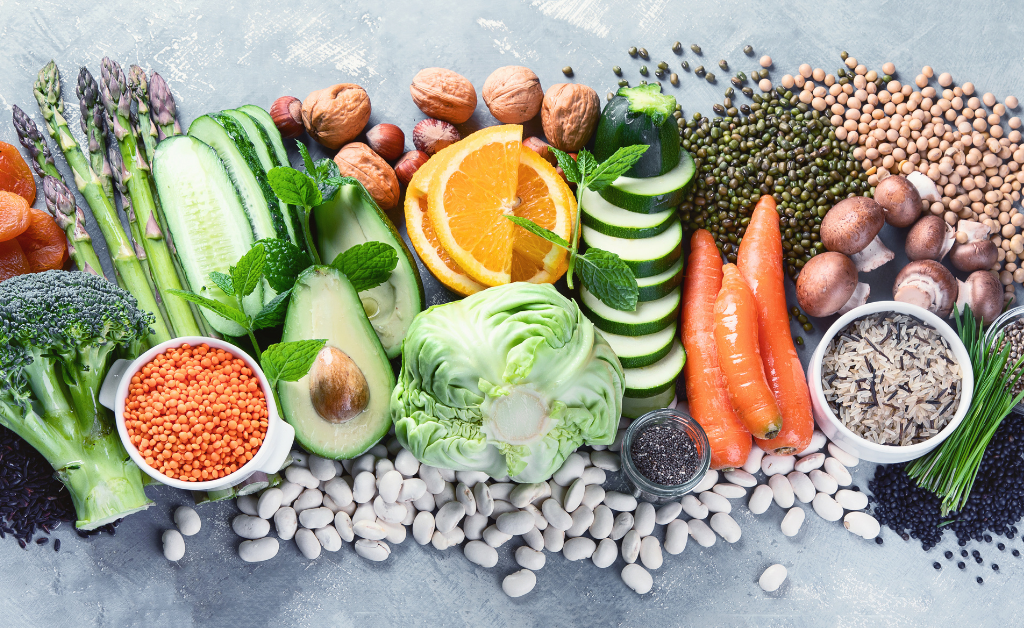Discover how diet impacts inflammation and learn practical tips on reducing chronic inflammation through nutrition. Understand the connection between food and inflammation and improve your health today.
Guest post by Pessie Ickovitz
Inflammation occurs as our body responds to infection, toxins and injury. This inflammatory response is a blessing as it is a part of our immune system, a way to protect our body from harm and allow it to heal. Inflammatory cells and increased blood flow are sent to surround a damage or threat and keep it contained. This type of response is called acute inflammation which causes redness, pain, and swelling that’ll normally last a few hours or possibly days until the body is healed.
In chronic inflammation, however, this immune response can last for months or years and it is spread throughout the body. This response is no longer a good thing as chronic inflammation can lead to the damage of healthy cells, tissues and organs and is linked to the development of cancer, heart disease, metabolic syndrome, rheumatoid arthritis, type 2 diabetes, obesity, asthma and neurodegenerative diseases like Alzheimer’s disease. Dealing with chronic inflammation can be extremely uncomfortable with symptoms like body pain, joint pain, muscle pain, chronic fatigue, insomnia, depression, anxiety, mood disorders, constipation, diarrhea, reflux, weight gain or weight loss, and frequent infections. For some, the symptoms are milder and more manageable.
Chronic inflammation is the sign of an underlying problem. It may be caused by an auto-immune disorder (such as rheumatoid arthritis, lupus, type 1 diabetes, celiac disease, or multiple sclerosis) where the immune system misidentifies healthy tissues as a threat and launches an immune response. Alternatively, chronic inflammation may be caused by prolonged exposure to irritants like industrial chemicals or pollution and untreated infections or injury. Chronic inflammation may be diagnosed by looking at blood levels of C-reactive protein (CRP). This test won’t identify the cause of the inflammation, but will confirm its presence. ( With acute inflammation CRP blood levels may be greater than 3.5mg/L. One to three milligrams/liter (mg/L) of blood may signify chronic inflammation.)
Treatments
Non-steroidal anti-inflammatory drugs (NSAIDs) are medications available over the counter and include aspirin, ibuprofen and naproxen. NSAIDs are effective in reducing inflammation and pain but there are complications associated with their prolonged use including risk of peptic ulcers, stroke, heart disease and kidney failure. Steroids are also used to treat inflammation, they work by suppressing the immune response that causes inflammation. This is beneficial in cases of allergies and autoimmune disease when the immune system is fighting against healthy cells. Long-term steroid use may lead to glaucoma, cataracts, high blood pressure, high blood sugar, diabetes, infections, osteoporosis, severe fatigue, loss of appetite, nausea, muscle weakness, bruising, and slow wound healing. Supplements are also used to treat inflammation. Different supplements have been tested for specific inflammatory diseases and shown significant improvements on levels of inflammation.
Curcumin, found in turmeric, has been shown to reduce inflammation and improve arthritis symptoms. Studies testing the effects of curcumin supplementation on people with metabolic syndrome and cancerous tumors have also found a significant reduction in inflammation.
Fish oil is another supplement used in treating inflammation. The omega-3 fatty acids which contain eicosapentaenoic acid (EPA) and docosahexaenoic acid (DHA) have been shown to reduce inflammation in people with higher than normal levels.
Food Modifications
An anti-inflammatory diet will not address the underlying cause of the inflammation but it may help to make symptoms more manageable while the cause is addressed with medical professionals.
- Incorporating plant-based foods into your diet will automatically provide you with multiple anti-inflammatory nutrients including antioxidants and phytonutrients. Plants with stronger pigments generally have higher levels of antioxidants, so make sure to include fruits and vegetables of all colors to gain from the different antioxidants they contain.
- Incorporate whole grains, nuts, seeds, soy-based proteins like tofu, legumes like beans, peas and lentils, herbs, and spices. Ginger, garlic and cayenne have been shown to help reduce chronic inflammation and components of black pepper have been found to be helpful in absorbing other anti-inflammatory compounds like curcumen found in turmeric.
- Omega-3 fatty acids which are found in salmon and tuna, walnuts, and flaxseed have been shown to reduce inflammation and help with the pain that is associated with it. Cut back on foods high in saturated fat like red meat and processed foods, including those high in sugar and fried in fat, as they’ve been associated with higher levels of inflammation.
There are many diet plans out there that incorporate these elements and can be considered an anti-inflammatory diet. The Mediterranean Diet and the DASH diet are two such examples.

Other Lifestyle Factors
Other than diet there are additional lifestyle factors that affect inflammation. Regular physical activity of moderate intensity has anti-inflammatory effects. Sleep disturbances, excessive alcohol consumption, chronic stress, smoking and obesity all increase inflammation. By taking care to get adequate sleep, manage stress and maintain a healthy weight one may reduce inflammation.
Consider the Following
Chronic inflammation is a prolonged condition that can cause damage in the body.
- Consulting with licensed healthcare workers is essential in managing chronic inflammation and treating the underlying cause.
- Addressing chronic inflammation with diet has proven effective.
- Incorporating a variety of plant-based foods while limiting heavily processed foods is helpful in reducing chronic inflammation.
Follow us on the DishWithDina Instagram and YouTube pages to learn more about how to manage or reduce your risk of chronic conditions.
References
- Gordon, Barbara (July 25,2019) Can Diet Help With Inflammation. Eatright.org Retrieved July 8th, 2021 https://www.eatright.org/health/wellness/preventing-illness/can-diet-help-with-inflammation
- Harvard Health Publishing (August 29, 2020) Foods that fight Inflammation. Health.Harvard.edu https://www.health.harvard.edu/staying-healthy/foods-that-fight-inflammation
- Harvard Health Publishing April 12, 2021 What is Inflammation? Health.Harvard.edu https://www.health.harvard.edu/heart-disease/ask-the-doctor-what-is-inflammation
- Santos-Longhurst, Adrienne July 27, 2018 Healthline.com https://www.healthline.com/health/chronic-inflammation#antiinflammatory-diets
- Mayo Clinic (August 13, 2019) mayoclinic.org https://www.mayoclinic.org/healthy-lifestyle/nutrition-and-healthy-eating/in-depth/how-to-use-food-to-help-your-body-fight-inflammation/art-20457586
- Cleveland Clinic (October 14, 2014) Health.ClevelandClinic.org
- Medline Plus (July 2, 2021) medlineplus.gov https://medlineplus.gov/ency/article/000821.htm
- Felman , Adam (April 13, 2020) medicalnewstoday.com https://www.medicalnewstoday.com/articles/248423#diet
- Pahwa R, Goyal A, Bansal P, et al. Chronic Inflammation. [Updated 2020 Nov 20]. In: StatPearls [Internet]. Treasure Island (FL): StatPearls Publishing; 2021 Jan. Available from: https://www.ncbi.nlm.nih.gov/books/NBK493173/
- Marcum, Z. A., & Hanlon, J. T. (2010). Recognizing the Risks of Chronic Nonsteroidal Anti-Inflammatory Drug Use in Older Adults. The annals of long-term care : the official journal of the American Medical Directors Association, 18(9), 2427. https://pubmed.ncbi.nlm.nih.gov/21857795/
- Panahi Y, Alishiri GH, Parvin S, Sahebkar A. Mitigation of Systemic Oxidative Stress by Curcuminoids in Osteoarthritis: Results of a Randomized Controlled Trial. J Diet Suppl. 2016;13(2):209-20. doi: 10.3109/19390211.2015.1008611. Epub 2015 Feb 17. PMID: 25688638.
- Panahi Y, Hosseini MS, Khalili N, Naimi E, Majeed M, Sahebkar A. Antioxidant and anti-inflammatory effects of curcuminoid-piperine combination in subjects with metabolic syndrome: A randomized controlled trial and an updated meta-analysis. Clin Nutr. 2015 Dec;34(6):1101-8. doi: 10.1016/j.clnu.2014.12.019. Epub 2015 Jan 7. PMID: 25618800.
- Maroon JC, Bost JW. Omega-3 fatty acids (fish oil) as an anti-inflammatory: an alternative to non-steroidal anti-inflammatory drugs for discogenic pain. Surg Neurol. 2006 Apr;65(4):326-31. doi: 10.1016/j.surneu.2005.10.023. PMID: 16531187.
Pessie Ickovitz has her Bachelor’s of Science Degree in Health and Nutrition from Brooklyn College and is currently a Dietetic Intern at KBDI.




0 Comments